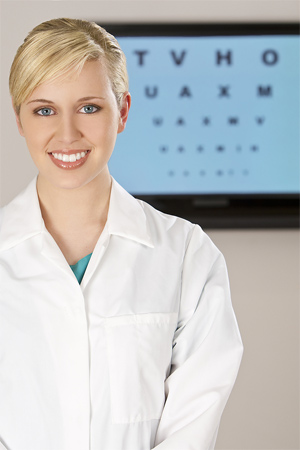Choosing a medical specialty: ophthalmology versus ENT

Q: Hi Dr. Pezzi,
I've always appreciated your candor and honesty in your responses to students interested in medicine. I just wanted to get your advice in choosing a medical specialty.
Just a little information about me: I am currently an M3 student who scored a 239 on my Step1 (your memory techniques were quite helpful!) and is in the top quarter of my class. I have whittled my specialty choices to ENT and ophthalmology. Personally, I love performing procedures (it doesn't have to be cutting and suturing necessarily) and love the instant gratification in improving patients' lives.
In regards to the two fields, I am leaning towards ophthalmology because I like the pathology/procedures more in the eye compared to the pathology/procedures in ENT. However, I am a little worried about the narrow scope of ophthalmology since it is only the eyes, therefore ENT would win out in this aspect.
Will the narrow scope of ophthalmology lead to boredom issues later in my career? Or is it true what I have heard others say, anything will become boring in the end, the repeated exposure is what makes a good physician. In addition, I heard that the field of ophthalmology is quite impacted and ENT offers better job opportunities. I enjoy many aspects of ENT as well, therefore, if it meant better job opportunities for the life of my career, I wouldn't mind going into that field either.
If you have any free time, I would appreciate hearing your opinion regarding the two fields and any pearls of advice you have in choosing a medical specialty. Thanks for the great advice you have posted on your websites thus far.
Sincerely,
Brian
Answer by
Kevin Pezzi, MD: Hi Brian,
One of my friends is an experienced (20+ years of practice) eye doc and generally loves it, but says the routine cases are painfully boring. He sees several emergency cases per day, which he lives for, since he revels in their challenge, novelty, and unpredictability—he never knows when he will see the next emergency patient or what that problem will be.
It is possible to make any medical specialty more challenging and interesting by striving for excellence and going the extra mile for your patients. For example, in the ER, instead of just suturing a patient (which can be boring after the 1000th routine case), I would strive for cosmetic results better than what some plastic surgeons could do. Or instead of fighting with pediatric patients who vigorously resist examinations and procedures, I would enlist their cooperation by singing to them or entertaining them with Alf, my stuffed animal. Or instead of doing a typical cursory ER H&P, I would (if I had time) do one more thorough than many patients ever obtained from their family physicians, or ask them if they wanted me to check something other than that related to their chief complaint. Some asked for a whole-body visual scan for skin cancer, breast exams, or “is that lump cancer?” checks. Or I would talk to patients about their diet and how it affected their health, healing, or mood.

As an ophthalmologist, you could educate patients about how foods with a high glycemic index (such as white bread, pasta, cookies, doughnuts, cake, etc.) increase the risk for age-related macular degeneration. As someone born blinder than a bat, I've seen umpteen ophthalmologists and optometrists, yet none ever asked a single question about my diet or gave me tips on how to minimize my risk for various eye diseases, except one doc who mentioned that ultraviolet radiation promoted cataract formation.
Remember that when you specialize, you don't lose your general medical knowledge. Many of the unmet medical needs I addressed in the ER could have been taken care of by the patients' family docs, but not all of them are thorough. I could have said, “I'm an emergency doctor and that's no emergency,” but I would help them unless the patient was abusing the system, such as the woman who lied to the 911 operator to get a free ride to the ER because she wanted to know if her vagina was too loose. That mystery just had to remain unsolved!
Now for the $64,000 question: How will ObamaCare affect you? Our government will create incentives for primary care physicians to handle more cases without referral to specialists. I think that will affect ENT doctors somewhat more than ophthalmologists, because the average doc doesn't want to treat any eye disease more serious than conjunctivitis or a sty.
In conclusion, I think ophthalmology is a better choice, but ObamaCare will give ulcers to doctors in every specialty—and most patients.
By the way, thank you for the compliments on my websites. I've always been amazed by the disparate reactions they elicit. Most people enjoy my writing, but others nitpick with something here or there and become verbally apoplectic, launching into full-blown ad hominem attacks or character assassination.
